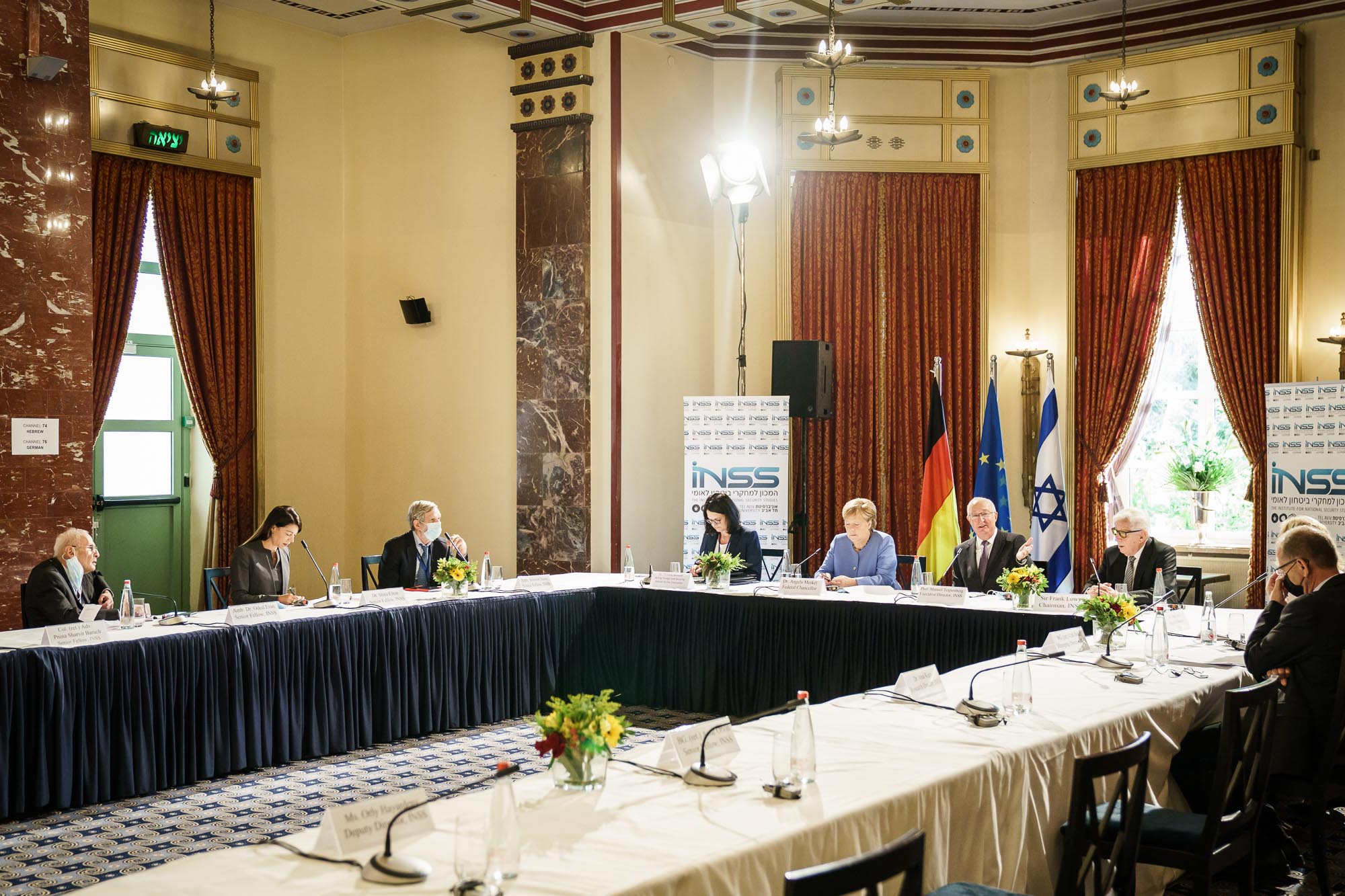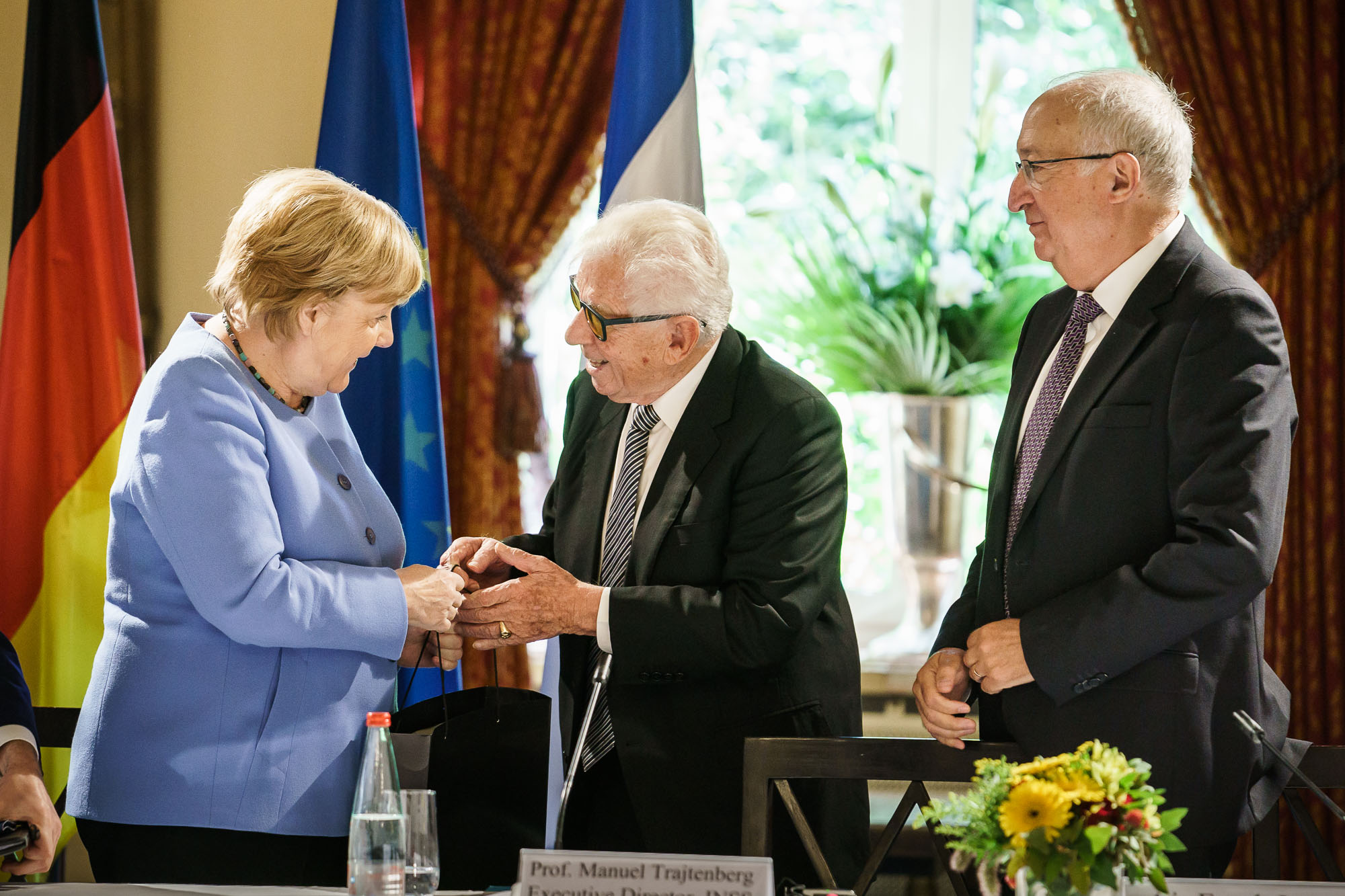
German Chancellor Dr. Angela Merkel Meets with Senior Researchers from the Institute for National Security Studies (INSS) at the King David Hotel
October 11. 2021
On Monday, October 11, 2021, as part of her visit to Israel, German Chancellor Dr. Angela Merkel met senior figures from the Institute for National Security Studies (INSS). During the meeting, Merkel addressed remarks to the Israeli public.
At the meeting, senior INSS researchers presented her with position papers regarding the climate crisis and national security; proposals for regional cooperation on water and energy; ideas on Israel's relations with Germany and the European Union; and proposals on the Palestinian issue.
Those from INSS attending the meeting included: Chairman of the INSS Board of Directors Sir Frank Lowy; Board member and former Minister Tzipi Livni, who joined the INSS Board a month ago; INSS Executive Director Prof. Manuel Trajtenberg; Shimon Stein, former Israeli ambassador to Germany; Dr. Oded Eran, former Israeli ambassador to the EU; INSS Managing Director Brig. Gen. (res.) Udi Dekel; Orly Hayardeny; Dr. Shira Efron; Dr. Anat Kurz; Dr. Gallia Lindenstrauss; Adi Kantor; and Brig. Gen. (res.) Assaf Orion.
Excerpts from Remarks by German Chancellor Dr. Angela Merkel:
On Iran:
"I have always supported the nuclear deal, despite recognizing its weakness, because I believed, and still believe, that it is an initial achievement and a framework that can be broadened. That said, unanimity eluded the negotiating partners for years and the country that most suffers from Iran's belligerence is Israel.”
"We have a common position: We must prevent Iran from achieving nuclear capability. We find ourselves at a very critical point – I say this openly – and we should keep pressing ahead. Yesterday I spoke with the Israeli Prime Minister and told him that there are additional dimensions, such as Iran's armament project and drones and missiles project. Thus far we have not succeeded in arresting Iran's regional ambitions. We need to talk with Russia, because it is an important actor in the region, as well as with Egypt and Jordan and other regional forces. European countries, together with the United States, Russia, and China, must prevent uranium enrichment. We should involve as many additional countries as possible with regard to the deal with Iran and try to block Iran through cooperation."
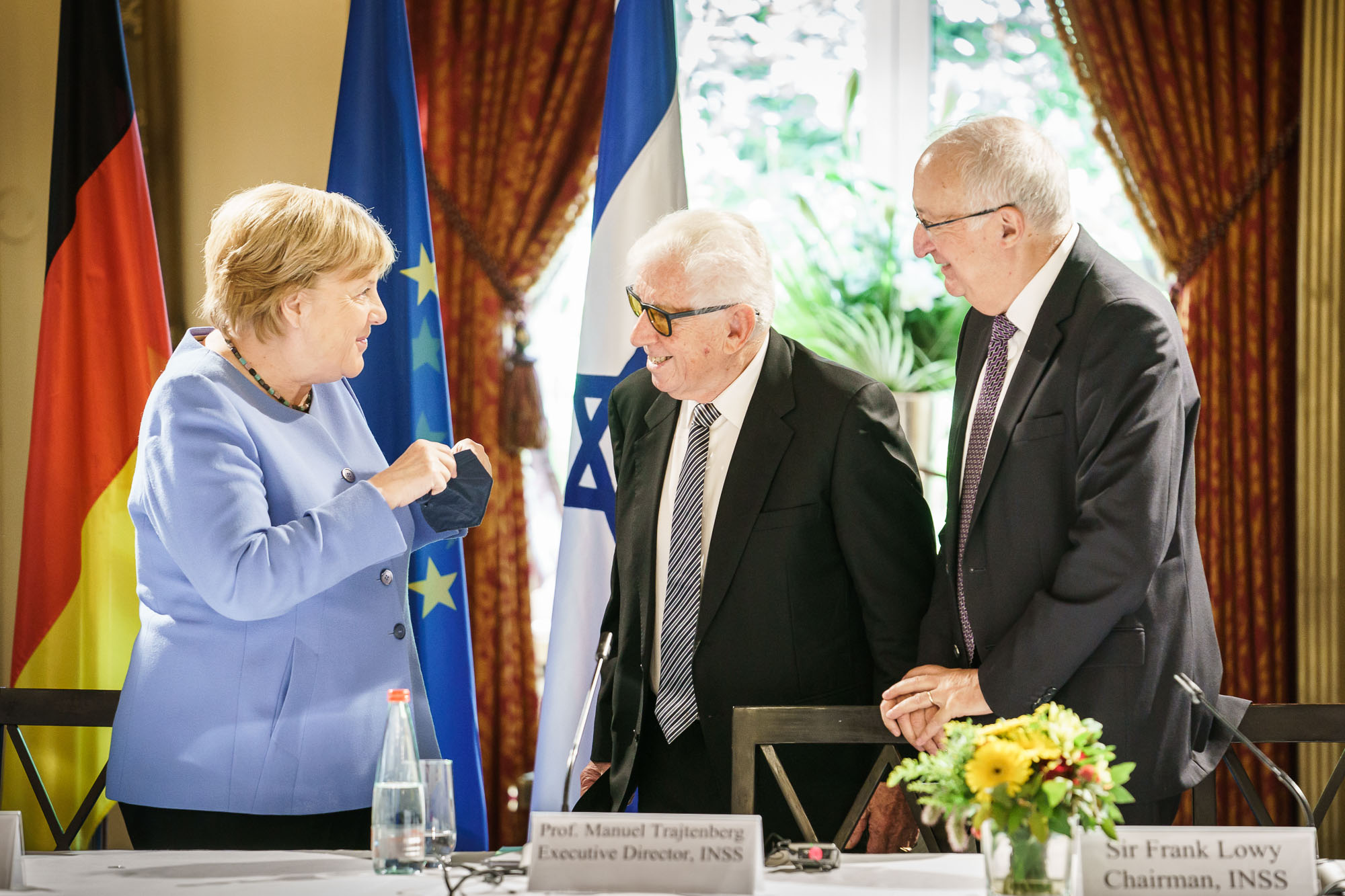
On the Palestinians:
"The question arises what a solution might look that would enable the Palestinians to live their lives. This has fallen off the agenda, somewhat, and it is good – and here I would like to thank INSS – that although this is not an issue that makes headlines, you continue to address the matter. I, like others, support a Jewish democratic state, but the state must be secure in the region for the long term, and just as Israel has the right to independent statehood, so do the Palestinians have a right to live and decide how to live. We must of course take into account the settlements, which make it difficult to create two states for two peoples. I like the fact that you do not work merely according to the headlines, but rather, in a practical manner, and are developing options and models, and I welcome this. In the long term this issue will not disappear, even if relations with neighboring Arab states improve. I think that the government is taking very interesting steps toward pragmatic solutions in order to improve the Palestinians' quality of life, and we on the European side will support these issues."
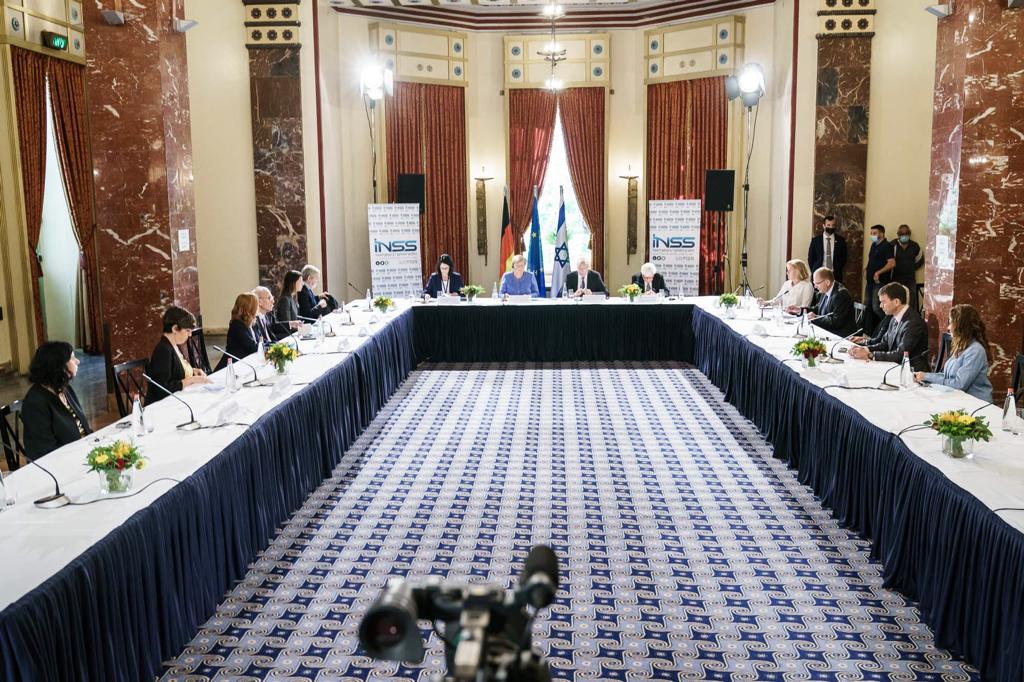
On the Middle East and the international arena:
"We find ourselves in a very complex environment. The global balance of power is changing. The Americans have withdrawn from Afghanistan and we see that the United States is no longer so unequivocally present and taking the lead everywhere in the world. This means that from a European perspective, we need a sharper definition of our security interest and we need to coordinate this together with the United States, to define who fills what role within the NATO framework. Just as your surroundings are complicated and the distance to Europe is not great, we are looking at Europe's outer border and we are close to it, and thus we have shared security interests that we should focus on in the coming years."
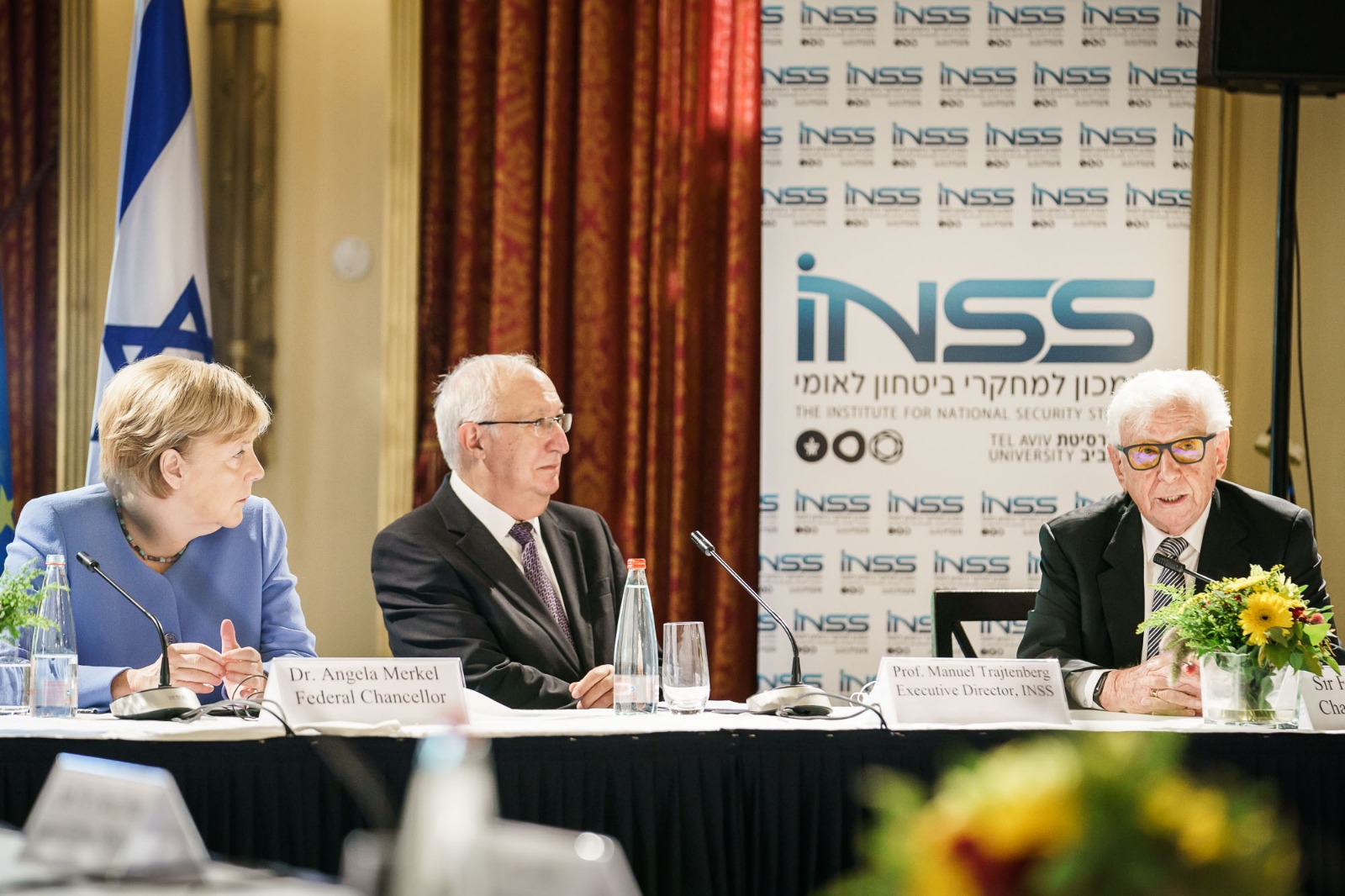
On China:
“We know that China is a country of growing importance, and I saw the many economic ties between Israel and China. At another opportunity we must really clarify the approach toward China, toward its social situation, economic power, and security concept. That warrants a separate discussion."
On societal polarization:
"Everywhere in the world we see the polarization of society. This is accelerated by the passage of time since World War II, the Nazi period, the Holocaust. It has brought an increase in antisemitism upon us. Antisemitism, like every form of hatred and incitement toward people who look different or think differently, poses a grave danger to our democracy. We in Germany have a big role in combating antisemitism that, I am sad to say, has not waned but grown. We must strive to fight this."
On climate change:
"Israel has conducted many leading studies in the realm of batteries, fast charging, electric mobility – but this has yet to be realized. We should do much more in the realm of the environment and sustainability."
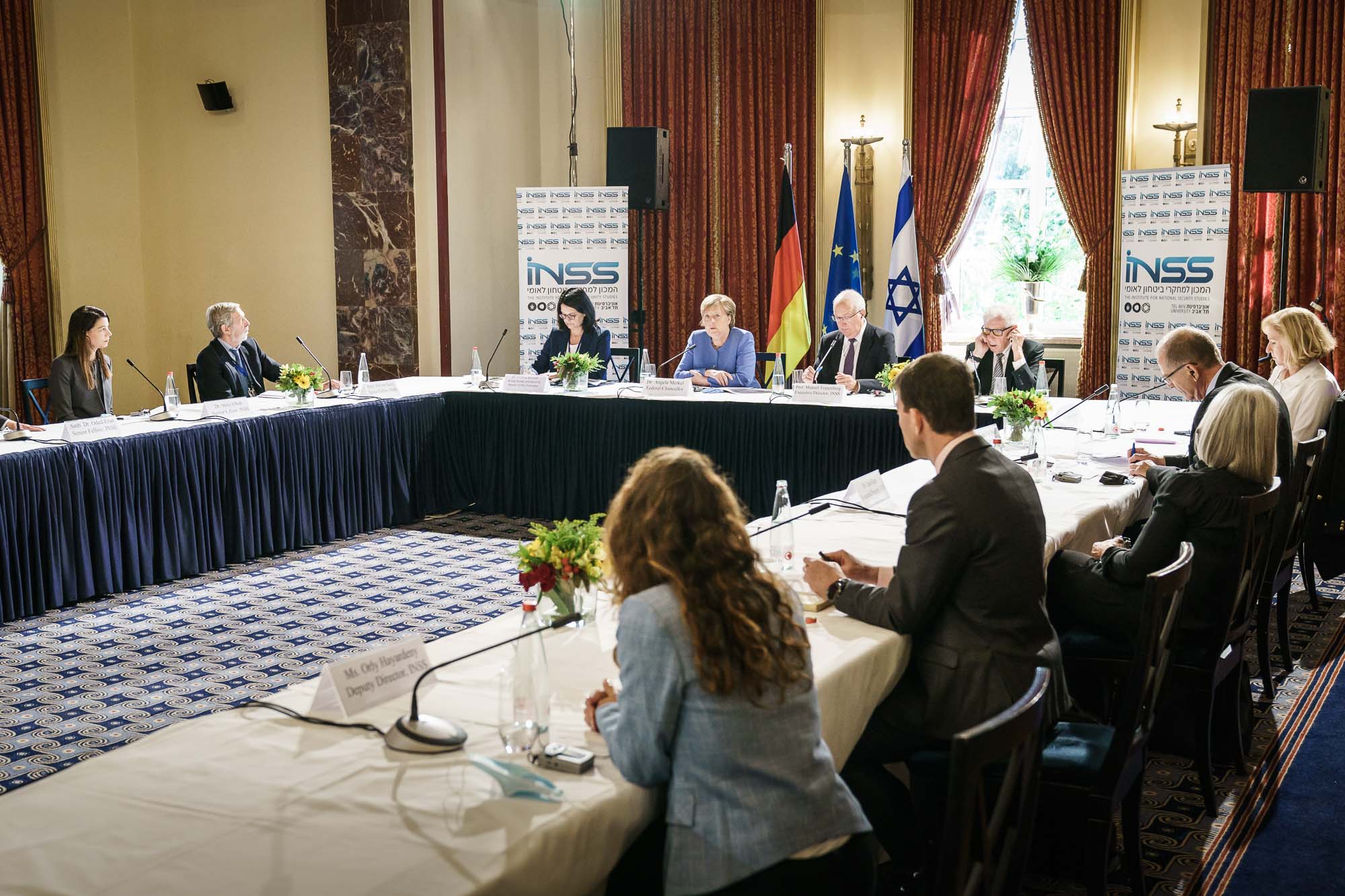
INSS Executive Director Prof. Manuel Trajtenberg:
"The outgoing German Chancellor, Dr. Angela Merkel, serves as one of the world's most outstanding and successful political figures this century. Her desire to visit Israel and address the Israeli public directly as she concludes her term as Chancellor demonstrates the depth of her commitment to the State of Israel and its security, as well as the strong friendship that has evolved between the countries during her tenure."
"The Chancellor's desire to meet with INSS researchers during her short visit here is an unprecedented honor for the Institute, and points to the great admiration she has for INSS. The discussion with her was fascinating. We exchanged views on the main and most pressing issues, from Iran to climate change, and we also invited her, after she leaves office, to play a role in advancing regional initiatives that can contribute to normalization and economic prosperity in the Middle East."
